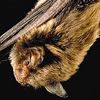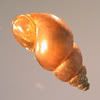Endangered Earth: Plant, Bats, Snails, and Turtles Get Help
Reposted with thanks to: Mom=*Family First*
Endangered Earth: Plant, Bats, Snails, and Turtles Get Help

Endangered Earth: Plant, Bats, Snails, and Turtles Get Help
Hawaiian Plant Becomes First Species Protected Under Obama Administration
 After a landmark Center for Biological Diversity lawsuit and more than a decade of waiting, this Monday the Hawaiian plant Phyllostegia hispida finally earned endangered status under the Endangered Species Act -- the first species to get this protection under the new administration. The tangly-vined, many-branched plant, currently reduced to just 24 known wild individuals, was considered for emergency listing to stop its imminent extinction more than three years ago -- but that move was quashed by the Bush administration, which instead put the plant on the "candidate list" to await protections indefinitely. Now, the future looks better for Phyllostegia hispida, but unfortunately, 251 species are still on the candidate list.
After a landmark Center for Biological Diversity lawsuit and more than a decade of waiting, this Monday the Hawaiian plant Phyllostegia hispida finally earned endangered status under the Endangered Species Act -- the first species to get this protection under the new administration. The tangly-vined, many-branched plant, currently reduced to just 24 known wild individuals, was considered for emergency listing to stop its imminent extinction more than three years ago -- but that move was quashed by the Bush administration, which instead put the plant on the "candidate list" to await protections indefinitely. Now, the future looks better for Phyllostegia hispida, but unfortunately, 251 species are still on the candidate list.In 2005, the Center and allies sued the Bush administration for using the candidate list as a stall tactic to avoid granting species much-needed protections. The 251 candidate species have been waiting an average of more than 20 years, with at least 24 species having died out while languishing in line for protections. Our goal is to earn firm deadlines for protecting all 251 species within three years.
Get more from the Associated Press.
Conservationists Victorious Against Bat-harming Oil and Gas Sale
 About a week after the Center for Biological Diversity and allies protested a plan to sell oil and gas leases on a portion of West Virginia's Monongahela National Forest, the U.S. Bureau of Land Management agreed to withdraw the area from the lease sale to the benefit of endangered bats. The land in question lies just a few miles west of "Hellhole Cave," the world's largest winter hibernation site for the Virginia big-eared bat and a major winter refuge for the Indiana bat, and oil drilling could disturb geology connected to the cave system. Right now, bats in the Northeast need all the protection they can get from any threat, since they've been dying by the thousands as the deadly and mysterious white-nose syndrome sweeps across New England -- and it's just been detected in West Virginia. Besides threatening bats, oil and gas drilling in the area would harm water quality, stream flows, and habitat for countless other species.
About a week after the Center for Biological Diversity and allies protested a plan to sell oil and gas leases on a portion of West Virginia's Monongahela National Forest, the U.S. Bureau of Land Management agreed to withdraw the area from the lease sale to the benefit of endangered bats. The land in question lies just a few miles west of "Hellhole Cave," the world's largest winter hibernation site for the Virginia big-eared bat and a major winter refuge for the Indiana bat, and oil drilling could disturb geology connected to the cave system. Right now, bats in the Northeast need all the protection they can get from any threat, since they've been dying by the thousands as the deadly and mysterious white-nose syndrome sweeps across New England -- and it's just been detected in West Virginia. Besides threatening bats, oil and gas drilling in the area would harm water quality, stream flows, and habitat for countless other species."This oil and gas project was going to further threaten bat species already spiraling rapidly toward oblivion," said Center conservation advocate Mollie Matteson. "The Forest Service and the Bureau of Land Management have a responsibility to make sure their actions do not harm endangered species or their habitat, and yet that responsibility was being ignored.
"
Read more in the Chicago Tribune.
Feds Propose Habitat Protections for Four Endangered Snails
 Thanks to legal action by the Center for Biological Diversity and Wildearth Guardians, last week four tiny, spineless residents of New Mexico's Bitter Lake National Wildlife Refuge inched toward needed safeguards when the feds made a new proposal to protect refuge habitat for the Roswell springsnail, Koster's springsnail, Noel's amphipod, and Pecos assiminea snail. The latest proposal reinstates a 2002 proposal to protect 1,523 acres of habitat for the Pecos assiminea and 1,127 acres for each of the other three invertebrates. It would rightfully void the Bush administration's 2006 decision to slash habitat for the Pecos assiminea and protect none for the other species, made under the assertion that the snails got enough protections from the Bitter Lake National Wildlife Refuge itself. But the refuge's managers don't control the area's underlying minerals, so to be a true refuge for all four snails, the Bitter Lake area needs extra protections to ward off oil and gas drilling.
Thanks to legal action by the Center for Biological Diversity and Wildearth Guardians, last week four tiny, spineless residents of New Mexico's Bitter Lake National Wildlife Refuge inched toward needed safeguards when the feds made a new proposal to protect refuge habitat for the Roswell springsnail, Koster's springsnail, Noel's amphipod, and Pecos assiminea snail. The latest proposal reinstates a 2002 proposal to protect 1,523 acres of habitat for the Pecos assiminea and 1,127 acres for each of the other three invertebrates. It would rightfully void the Bush administration's 2006 decision to slash habitat for the Pecos assiminea and protect none for the other species, made under the assertion that the snails got enough protections from the Bitter Lake National Wildlife Refuge itself. But the refuge's managers don't control the area's underlying minerals, so to be a true refuge for all four snails, the Bitter Lake area needs extra protections to ward off oil and gas drilling."These four New Mexico invertebrates are found nowhere else on Earth," said the Center's Michael Robinson. "Protect these species and you protect the springs they call home, ultimately benefiting dozens of species and an incredibly unique place.
"
Get all the details in our press release.
Coalition Petitions Eight States to End Unsustainable Turtle Harvest
 Last Wednesday the Center for Biological Diversity joined two dozen other groups to file emergency petitions with Arkansas, Iowa, Kentucky, Louisiana, Missouri, Ohio, South Carolina, and Tennessee to ban the commercial harvest of freshwater turtles. Out-of-control turtle collection in these states is detrimentally depleting native turtle populations, which are extremely sensitive to overharvest and are already threatened by pollution, road mortality, fishery devices, and habitat loss. Scientists warn that freshwater turtles can't sustain any significant level of harvest -- much less the modern-day turtle-harvesting "gold rush" to supply Asian food markets -- without facing devastating population crashes. And unfortunately for both reptile and human, many turtles destined for the plate are being contaminated with deadly pollutants.
Last Wednesday the Center for Biological Diversity joined two dozen other groups to file emergency petitions with Arkansas, Iowa, Kentucky, Louisiana, Missouri, Ohio, South Carolina, and Tennessee to ban the commercial harvest of freshwater turtles. Out-of-control turtle collection in these states is detrimentally depleting native turtle populations, which are extremely sensitive to overharvest and are already threatened by pollution, road mortality, fishery devices, and habitat loss. Scientists warn that freshwater turtles can't sustain any significant level of harvest -- much less the modern-day turtle-harvesting "gold rush" to supply Asian food markets -- without facing devastating population crashes. And unfortunately for both reptile and human, many turtles destined for the plate are being contaminated with deadly pollutants.The Center and allies have now petitioned every U.S. state with unrestricted commercial harvest or inadequate harvest regulations for freshwater turtles. Thanks to work we did in 2008, last Friday Florida passed the first-ever draft rule to ban commercial harvest or sale of freshwater turtles. This is a crucial step in safeguarding these shelled reptiles. Texas and Oklahoma are also making steps toward protecting turtles, and Georgia and South Carolina are considering turtle-harvest regulation bills. But we still have a long way to go to truly protect freshwater turtles -- and states desperately need to step up their turtle-paced action.
Get more on our petitions from the Lexington Herald-Leader and read about Florida's ban in the South Florida Sun-Sentinel.
Suits Brewing for Sea Turtles - Take Action Now
 Freshwater turtles aren't the only turtles that need help. To ensure that imperiled marine turtles get needed protections on land and at sea, last Thursday the Center for Biological Diversity and allies warned the National Marine Fisheries Service we'll sue if it doesn't respond to our petitions on additional safeguards for loggerhead and leatherback sea turtles. Back in 2007, we filed three separate scientific petitions seeking to upgrade the Endangered Species Act status of North Pacific and western North Atlantic loggerheads from "threatened" to "endangered," increase protections for loggerheads' key nesting habitat, and secure federally protected habitat for the leatherback in areas off California and Oregon. But a year and a half after our call to action, the Fisheries Service still hasn't met its 12-month deadline for responding to our petitions -- which actually expired last fall. Meanwhile, loggerheads have declined by at least 80 percent in the North Pacific, and the Pacific population of leatherback sea turtles is on the brink of extinction.
Freshwater turtles aren't the only turtles that need help. To ensure that imperiled marine turtles get needed protections on land and at sea, last Thursday the Center for Biological Diversity and allies warned the National Marine Fisheries Service we'll sue if it doesn't respond to our petitions on additional safeguards for loggerhead and leatherback sea turtles. Back in 2007, we filed three separate scientific petitions seeking to upgrade the Endangered Species Act status of North Pacific and western North Atlantic loggerheads from "threatened" to "endangered," increase protections for loggerheads' key nesting habitat, and secure federally protected habitat for the leatherback in areas off California and Oregon. But a year and a half after our call to action, the Fisheries Service still hasn't met its 12-month deadline for responding to our petitions -- which actually expired last fall. Meanwhile, loggerheads have declined by at least 80 percent in the North Pacific, and the Pacific population of leatherback sea turtles is on the brink of extinction.The Center is also fighting to make sure that loggerheads off Florida's west coast aren't subjected to continued injury and death in the Gulf of Mexico commercial bottom longline fishery. Nearly 800 loggerheads have been caught, injured, or killed by this fishery since July 2006. Obviously, these turtles don't have time to wait.
Read more on our pending lawsuits in the San José Mercury-News, watch Louie the sea turtle plead for protections, and take action yourself to help save these magnificent reptiles in the Gulf of Mexico.
Mexican Wolf Needs New Recovery Plan, Halt to Persecution
 In comments on the U.S. Fish and Wildlife Service's latest assessment of the current Mexican gray wolf management program, last Tuesday the Center for Biological Diversity and allies let the agency know what the wolf really needs: a federal recovery plan to replace the grossly outdated current plan, along with a temporary end to all wolf trappings and shootings. The old recovery plan -- in fact released way back when Duran Duran's single "Hungry Like the Wolf" graced the charts -- hasn't been updated since 1982, and it doesn't specify how many wild Mexican wolves would constitute recovery. Nowadays, only one population, numbering a meager 52 animals and two breeding pairs, roams free in Arizona and New Mexico. Government removals of Mexican wolves from the wild under the outdated plan have left dozens of Mexican wolves in permanent captivity, 18 accidentally killed, and 11 straight-up shot.
In comments on the U.S. Fish and Wildlife Service's latest assessment of the current Mexican gray wolf management program, last Tuesday the Center for Biological Diversity and allies let the agency know what the wolf really needs: a federal recovery plan to replace the grossly outdated current plan, along with a temporary end to all wolf trappings and shootings. The old recovery plan -- in fact released way back when Duran Duran's single "Hungry Like the Wolf" graced the charts -- hasn't been updated since 1982, and it doesn't specify how many wild Mexican wolves would constitute recovery. Nowadays, only one population, numbering a meager 52 animals and two breeding pairs, roams free in Arizona and New Mexico. Government removals of Mexican wolves from the wild under the outdated plan have left dozens of Mexican wolves in permanent captivity, 18 accidentally killed, and 11 straight-up shot.By now, the Center's comments show, the noble gray wolf of the Southwest is hungry for an adequate recovery plan and needs immediate protection from persecution if it's ever to attain the relative success of its northern Rockies cousins.
Check out our press release, where you can read our comments for yourself, and learn more about the Mexican gray wolf.
Lawsuit Imminent to Protect Amargosa Toad
 Last week the Center for Biological Diversity and Public Employees for Responsibility gave a strong voice to Nevada's mostly mute, highly imperiled Amargosa toad when we warned the U.S. Fish and Wildlife Service that a lawsuit's coming if it doesn't respond to our petition to protect the amphibian under the Endangered Species Act. Even though the toad's dwindling population is relentlessly plagued by development, nonnative predators, grazing, off-road vehicles, water projects, and climate change -- and the toad occupies just a single 10-mile stretch along the Amargosa River -- the federal government has so far ignored the species' plight and missed the 12-month deadline to make a decision regarding our February 2008 petition.
Last week the Center for Biological Diversity and Public Employees for Responsibility gave a strong voice to Nevada's mostly mute, highly imperiled Amargosa toad when we warned the U.S. Fish and Wildlife Service that a lawsuit's coming if it doesn't respond to our petition to protect the amphibian under the Endangered Species Act. Even though the toad's dwindling population is relentlessly plagued by development, nonnative predators, grazing, off-road vehicles, water projects, and climate change -- and the toad occupies just a single 10-mile stretch along the Amargosa River -- the federal government has so far ignored the species' plight and missed the 12-month deadline to make a decision regarding our February 2008 petition.Fewer than 20 Amargosa toad breeding pairs are known near the Amargosa River in Nye County, Nevada -- and all the species' remaining habitat is at risk of destruction.
Read more in the Las Vegas Sun.
Give an Hour to the Earth With the Flick of Your Thumb
 Yearning for something easy to do for the planet? How about flipping a switch? Participate in Earth Hour on Saturday, March 28, 2009 and join Polar Bears International and the World Wildlife Fund -- and, of course, all of us at the Center for Biological Diversity -- in making a worldwide statement by turning your lights out from 8:30 p.m. to 9:30 p.m. local time, wherever you live on Earth. By staying in the dark for a single hour, you'll be joining millions in enlightening world leaders on what needs to be done to stop climate change now.
Yearning for something easy to do for the planet? How about flipping a switch? Participate in Earth Hour on Saturday, March 28, 2009 and join Polar Bears International and the World Wildlife Fund -- and, of course, all of us at the Center for Biological Diversity -- in making a worldwide statement by turning your lights out from 8:30 p.m. to 9:30 p.m. local time, wherever you live on Earth. By staying in the dark for a single hour, you'll be joining millions in enlightening world leaders on what needs to be done to stop climate change now.Earth Hour began in Sydney, Australia in 2007, and this year every ferry in the city's harbor will sound its horn at exactly 8:30 p.m. to announce the beginning of Earth Hour Down Under. More than 1,000 cities and towns across 80 countries have committed to participating in Earth Hour. This is a great chance for all us global citizens to speak out on climate change with one powerful voice through one simple act.
Go to the Earth Hour Web site to learn how you can sign up, tell a friend, and lead your own Earth Hour event.
Mom = *Family First*














0 Comments:
Post a Comment